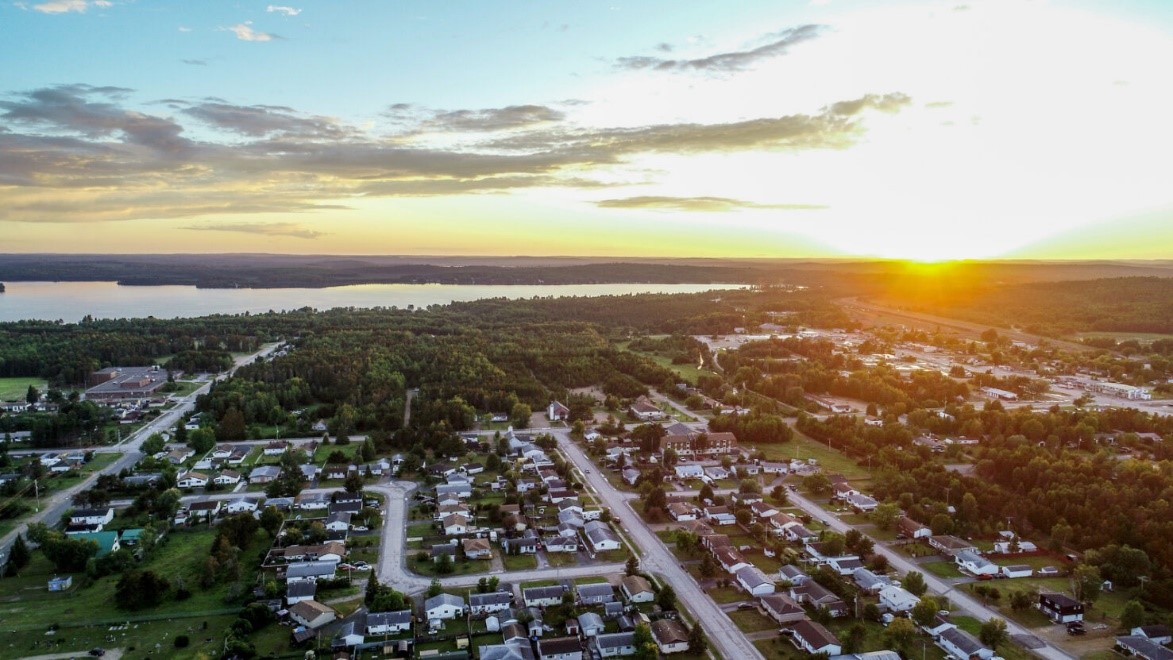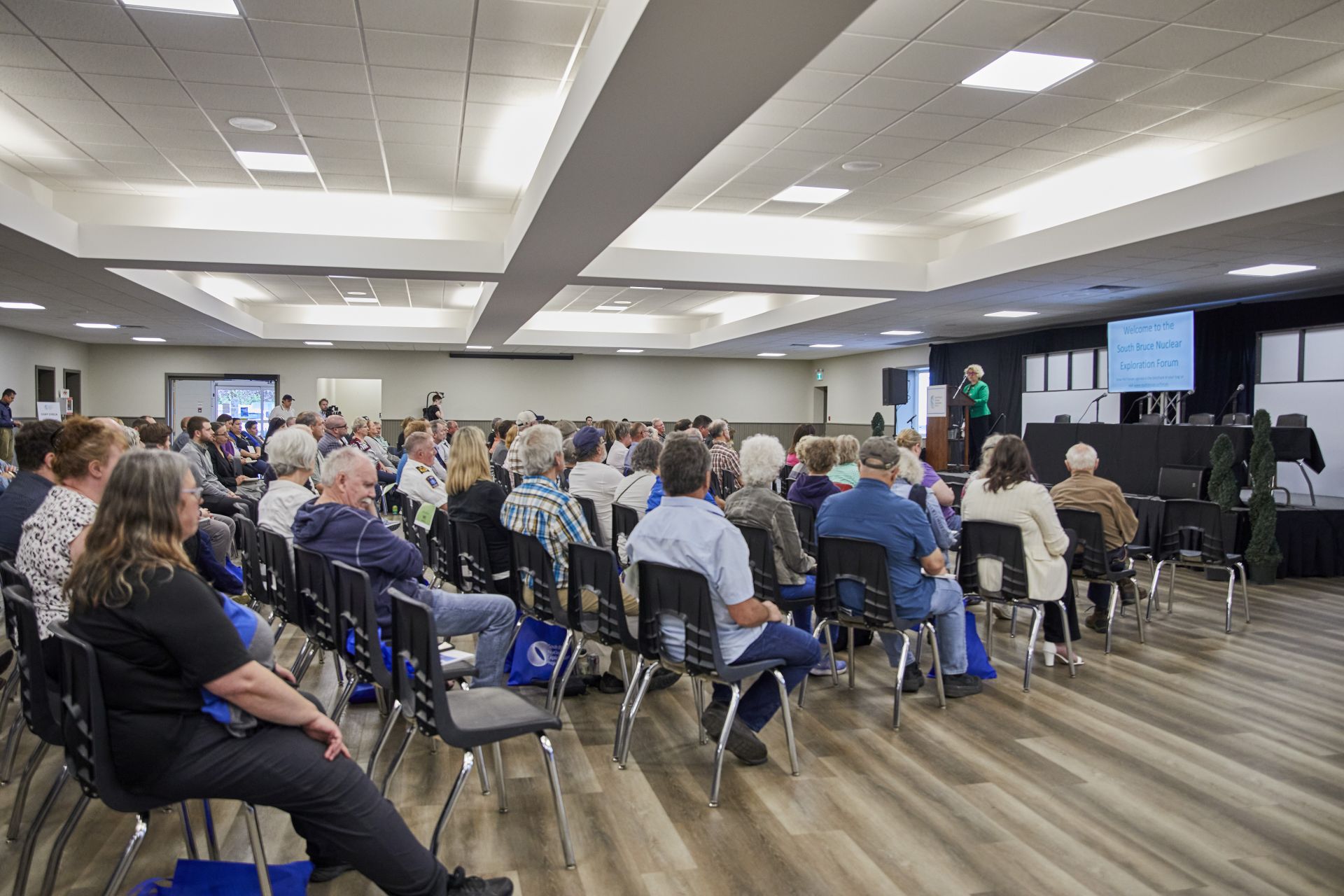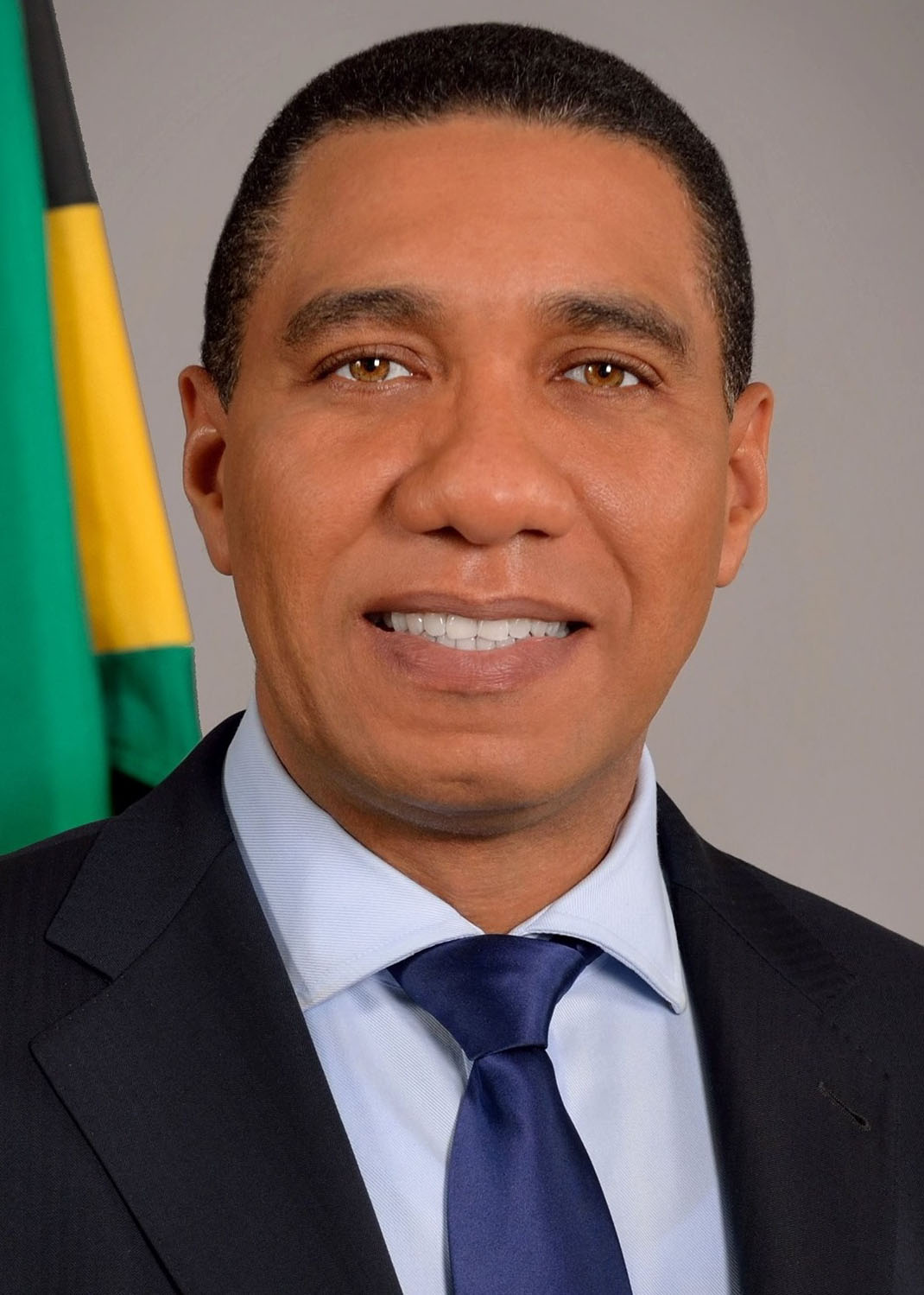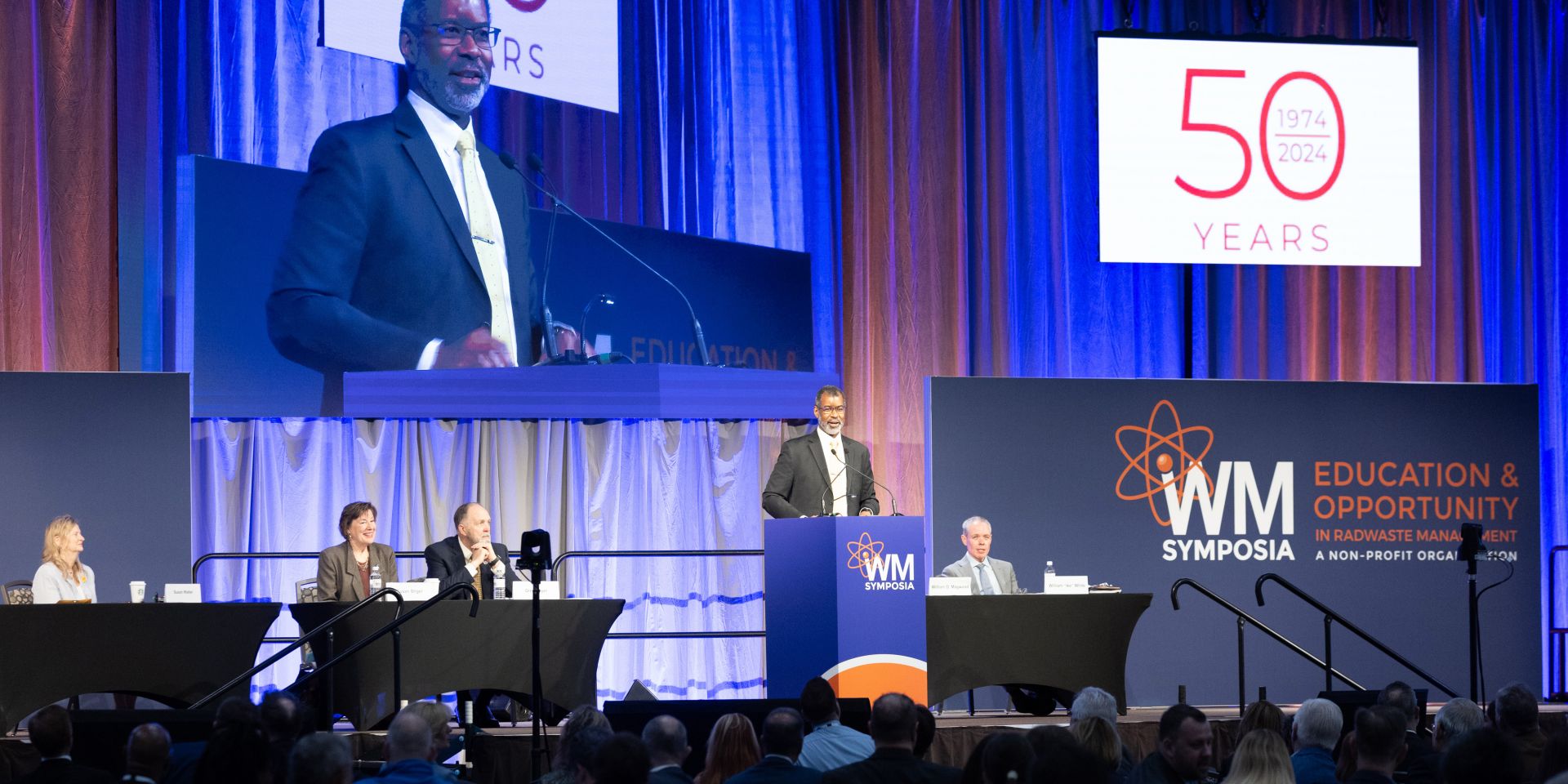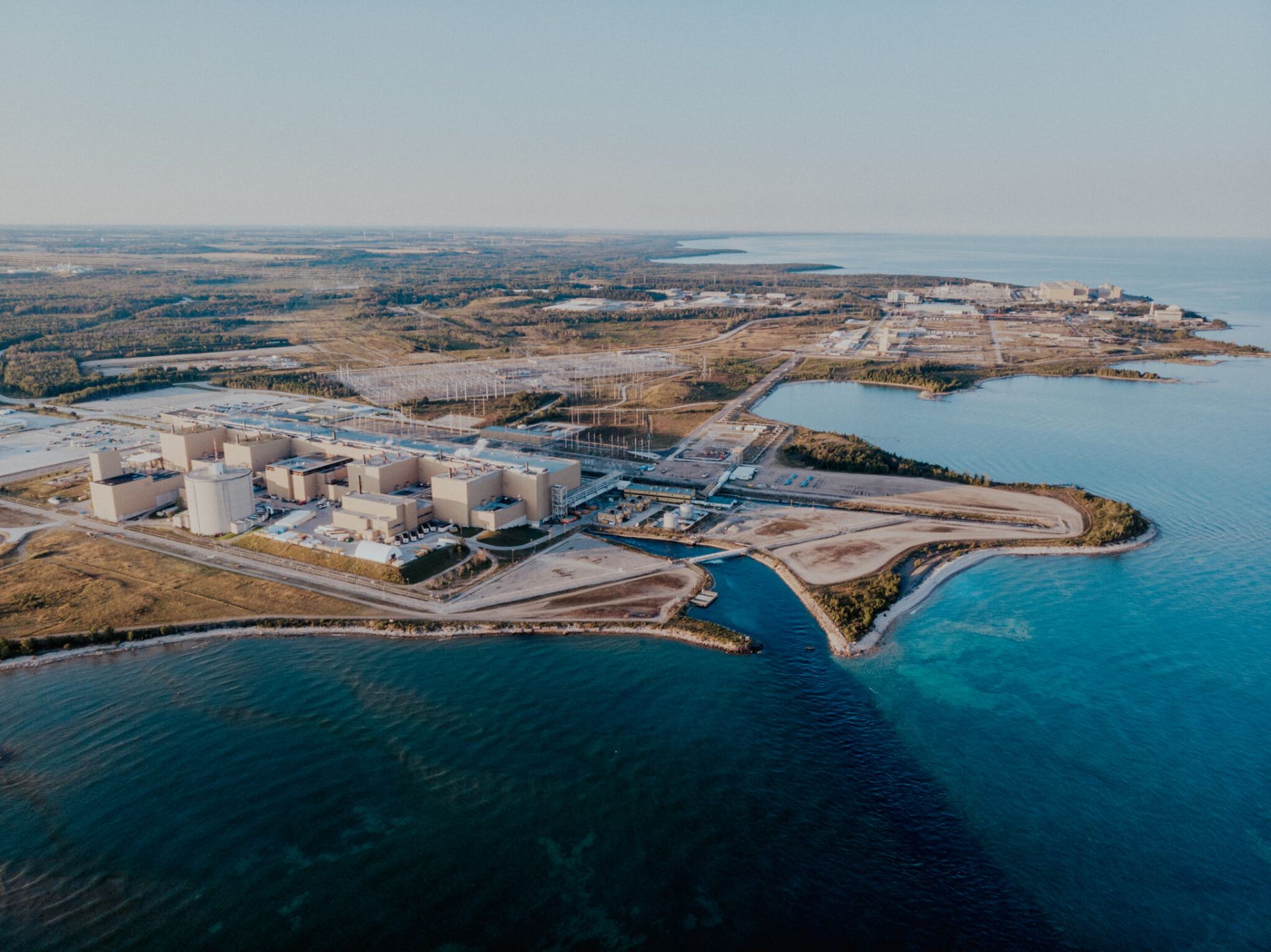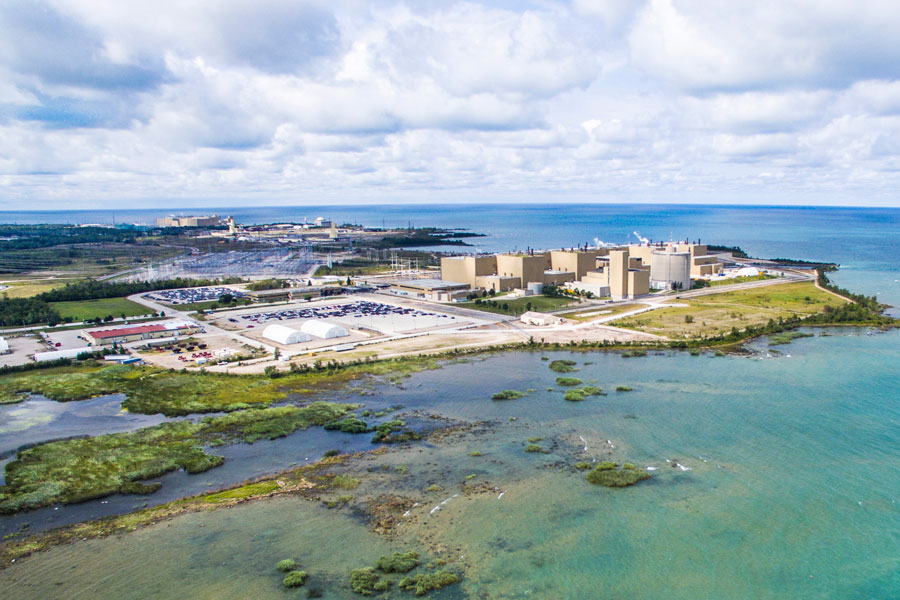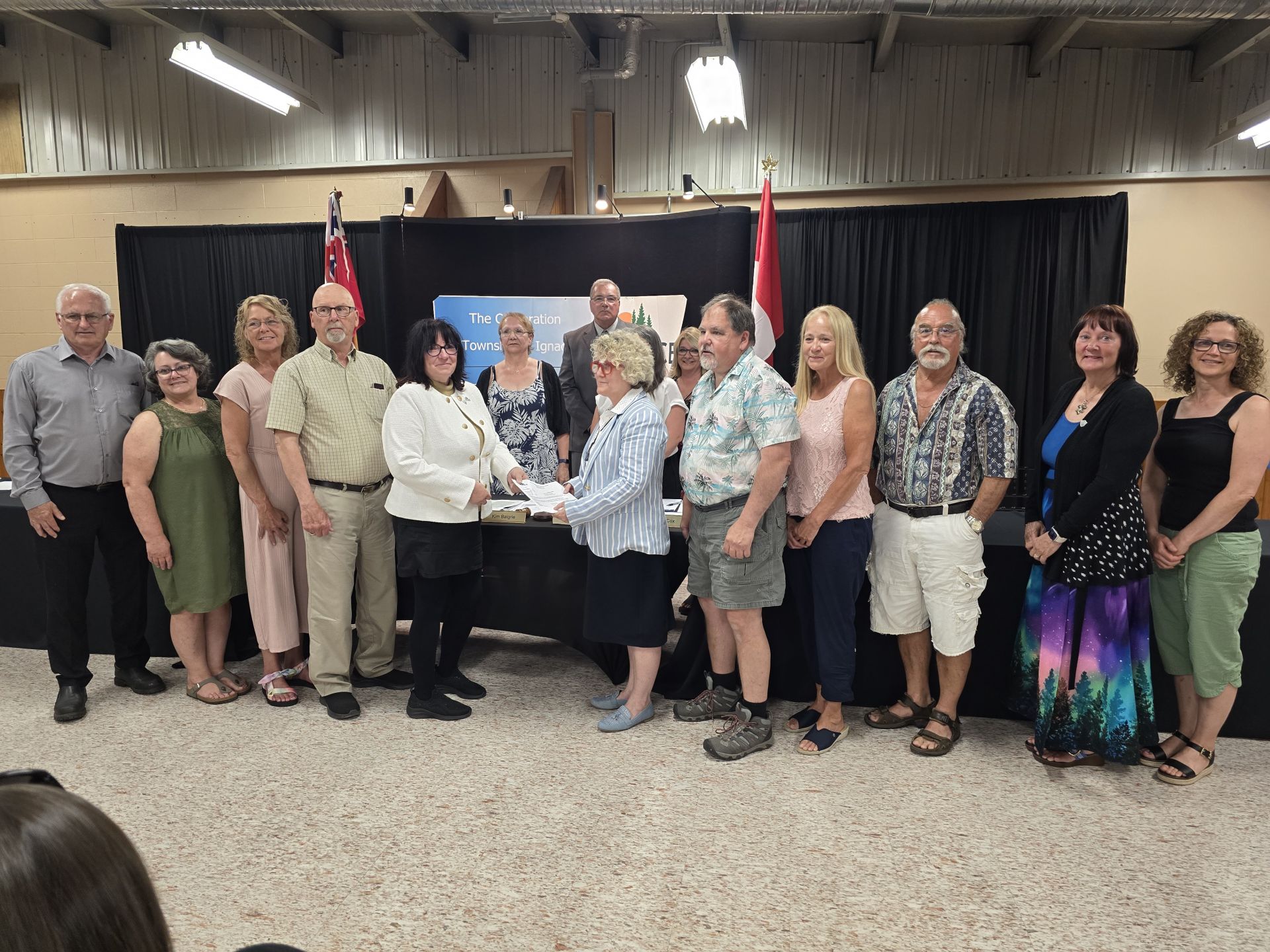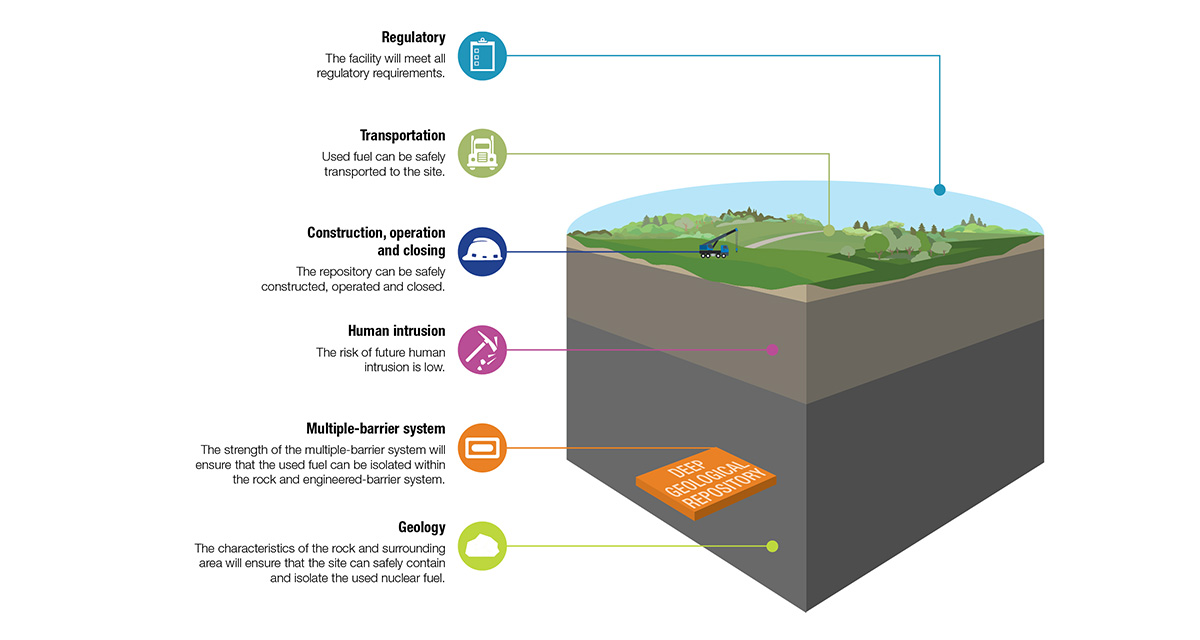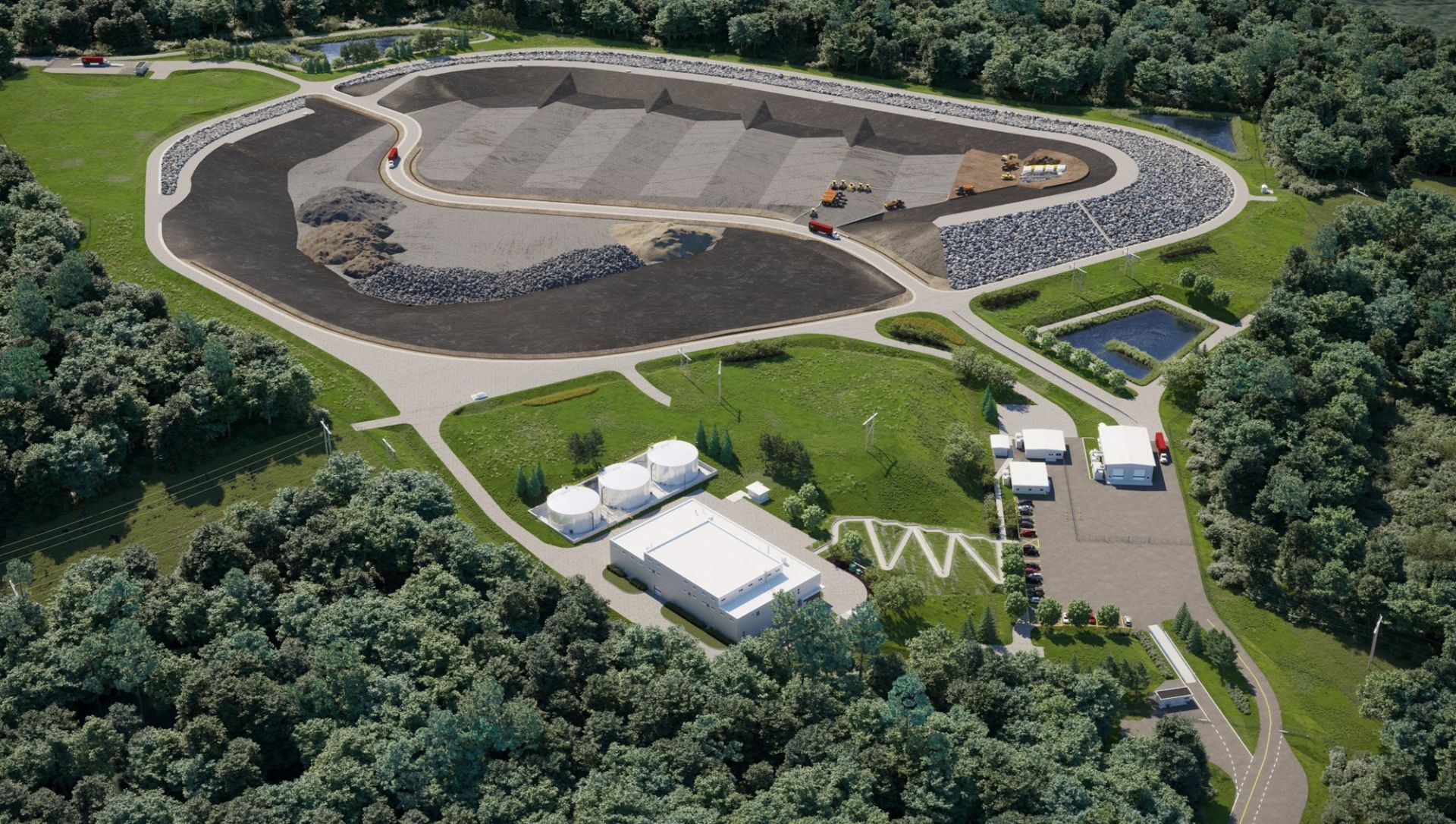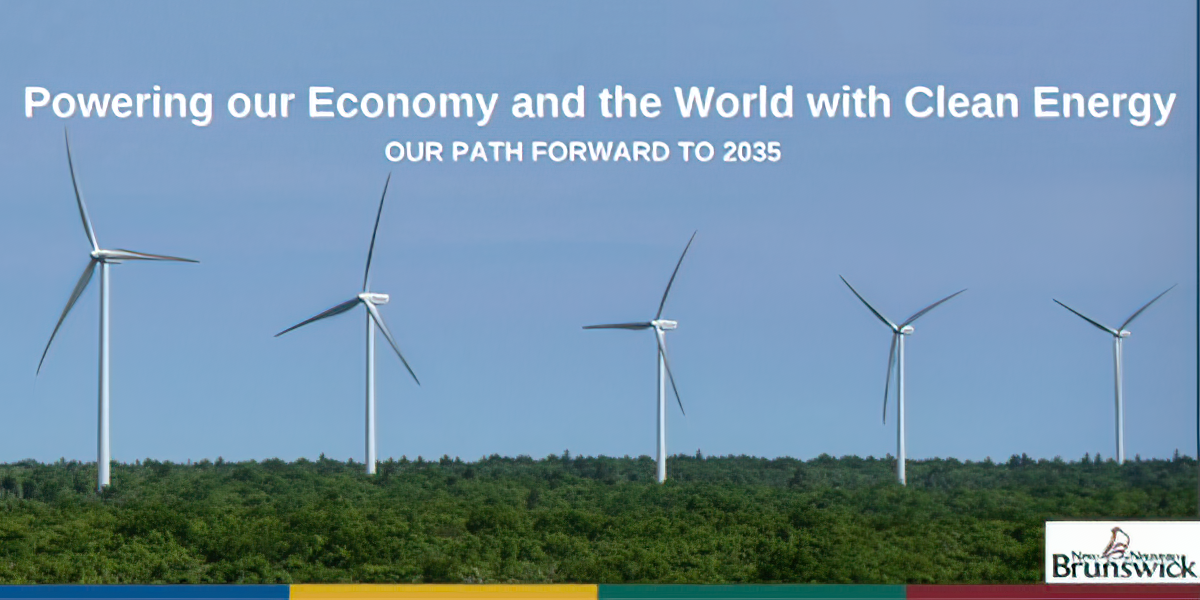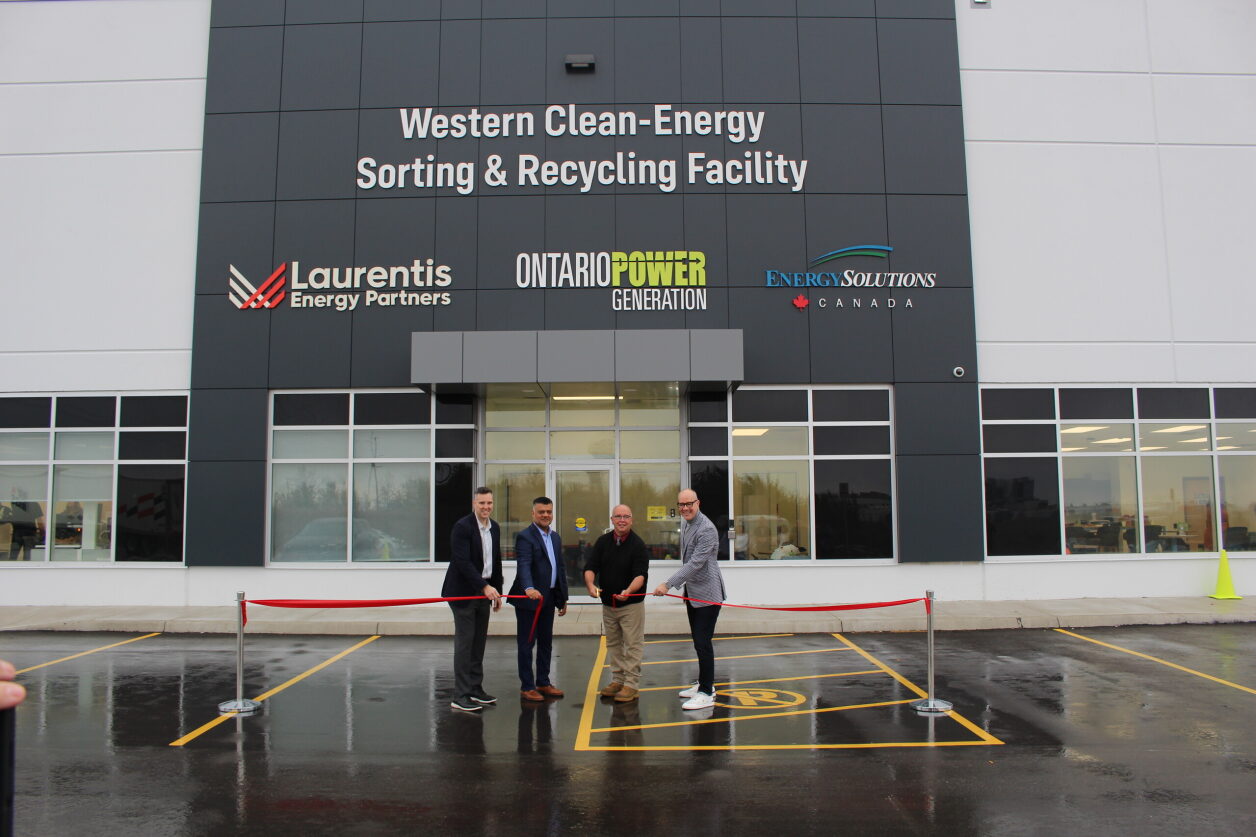An aerial picture of Ignace, Ontario. (Photo: NWMO)
While the United States was celebrating Thanksgiving Day, Canada’s Nuclear Waste Management Organization (NWMO) announced that it has selected a site in northwestern Ontario for a deep geologic repository to hold the country’s spent nuclear fuel
Wabigoon Lake Ojibway Nation indicated its willingness to host a geologic repository in northwestern Ontario. (Photo: NWMO)
Canada’s Nuclear Waste Management Organization (NWMO) announced that Wabigoon Lake Ojibway Nation has indicated its willingness to support moving forward to the next phase of the site selection process to host a deep geological repository for Canada’s spent nuclear fuel.
The municipality of South Bruce announces the unofficial results of the referendum to determine if South Bruce would be a willing host for a proposed deep geological repository. (Photo: NWMO)
The municipality of South Bruce, located near the Bruce nuclear power plant in southwestern Ontario, voted narrowly in favor of being a willing host to a potential deep geologic repository for Canada’s spent nuclear fuel. The official declaration of results from the municipality showed that 51 percent of South Bruce residents voted in favor of the referendum, with 1,604 voting "yes" and 1,526 voting "no." Voter participation was 69 percent, surpassing the 50 percent voter turnout required to make the vote binding by law.
The OECD Nuclear Energy Agency’s William Magwood addresses the plenary audience of the 2024 Waste Management Conference in Phoenix. (Photo: WM Symposia)
Waste Management Symposia announced that the theme of next year’s Waste Management Conference (WM2025) will be “Empowering A Sustainable Future—Advanced Technologies, AI, and Workforce Development across the Nuclear Landscape.” To be held in Phoenix, Ariz., March 9–13, the conference will showcase how new technologies and the evolving digital world are transforming the global nuclear landscape, supply chains, infrastructure, and work norms.
The Bruce site currently hosts eight CANDU reactors. (Photo: Bruce Power)
As Bruce Power continues predevelopment work, public input is being sought on the potential Bruce C nuclear power expansion project in Ontario.
Bruce Power recently submitted its initial project description to the Impact Assessment Agency of Canada for an expansion that would add up to 4,800 MWe. Earlier this year, the Canadian government announced up to C$50 million ($36.8 million) in funding for the Bruce C project, which would be Canada’s first major expansion of a large nuclear plant in decades.
The Bruce Power nuclear power plant. (Photo: Bruce Power)
The NWMO’s Laurie Swami (center right) congratulates Ignace mayor Kim Baigrie (center left) on the community’s confirmation of its willingness to host a deep geologic repository for Canada’s spent nuclear fuel. (Photo: NWMO)
The township of Ignace in northwestern Ontario has indicated its willingness to host a potential deep geologic repository for Canada’s spent nuclear fuel. The town council voted unanimously on July 10 to pass a resolution indicating its willingness to participate in the Nuclear Waste Management Organization’s (NWMO's) process for selecting a repository site, making it the first Canadian community to officially move forward with the next phase of a site selection process that began in 2010.
The partially constructed Units 3 and 4 at Cernavoda nuclear plant in Romania. (Image: Nuclearelectrica)
The European Commission has issued a positive opinion on the technical and nuclear safety aspects of the construction of Units 3 and 4 at Cernavoda nuclear power plant in Romania.
Under the Euratom Treaty, nuclear project developers are required to notify the EC of planned investments and to demonstrate compliance with the highest nuclear safety standards.
FFC board members (from left to right) Kiyoshi Seko (KF), Stephen Bushby (CNL), Satoshi Konishi (KF), and Ian Castillo (CNL) in Tokyo, Japan.
Japan’s Kyoto Fusioneering, a fusion startup spun out from Kyoto University, and Canadian Nuclear Laboratories have announced the formation of Fusion Fuel Cycles Inc., headquartered in Chalk River, Ontario, Canada. The joint venture extends a strategic alliance formed between the two entities in September 2023 and aims to develop and deploy deuterium-tritium (D-T) fusion fuel cycle technologies.
An illustration of a planned deep geologic repository for Canada’s spent nuclear fuel. (Image: NWMO)
Canada’s Nuclear Waste Management Organization, a not-for-profit organization responsible for the long-term management of the country’s intermediate- and high-level radioactive waste, is set to select a site for a deep geologic repository by the end of the year.
The OECD NEA workshop will be held at Chateau Laurier in Ottawa, Canada. (Image: OECD NEA)
The OECD Nuclear Energy Agency is hosting a workshop on the economics of small modular reactors in Ottawa, Canada, on February 27, 2024.
The workshop will be an in-person event, with no hybrid or virtual attendance option. There is no cost for the workshop, but attendees from relevant organizations will be prioritized due to room capacity.
Registration is required.
Concept art of the Chalk River near surface disposal facility for LLW. (Image: CNL)
The Canadian Nuclear Safety Commission has decided to amend Canadian Nuclear Laboratories’ operating license for the Chalk River Laboratories, allowing the construction of a near surface disposal facility (NSDF) for low-level radioactive waste on the nuclear research site in Deep River, Ontario.
Representatives from OPG, Laurentis Energy Partners, and EnergySolutions Canada, as well as the mayor of Kincardine, Kenneth Craig, cut the ceremonial ribbon to officially open WCSR facility. (Photo: OPG)
Ontario Power Generation (OPG) subsidiary Laurentis Energy Partners has opened, in partnership with EnergySolutions Canada, a new 42,000-square-foot facility in Kincardine, Ontario, that will minimize waste associated with nuclear energy generation in the Canadian province, the company announced this week.
Bruce Power and Nordion will increase Co-60 production at the Bruce nuclear power plant in Ontario. (Photo: Bruce Power)
Bruce Power, the utility in Ontario, Canada, and health-care company Nordion announced that they are working to increase the production of cobalt-60 to meet increasing world market demands. The companies said they will increase the amount of Co-60 Bruce Power is able to produce in its reactors “by innovating a new adjuster component configuration.”
